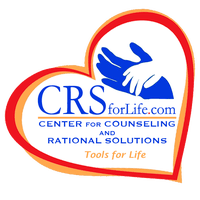How Can a Mental Health Professional Help in the Collaborative Divorce Process

A neutral mental health facilitator plays a crucial role in the collaborative process, which typically refers to collaborative divorce or collaborative family law. This process aims to resolve legal disputes, especially those related to family matters, in a cooperative and non-adversarial manner.
The neutral mental health facilitator provides emotional support and guidance to the individuals involved in the collaborative process. Divorce and family law matters can be emotionally charged, and having a trained professional to help manage emotions and reduce tension is beneficial. They help improve communication between the parties involved, which is essential for reaching mutually agreeable solutions. They create a safe and respectful environment for open and productive discussions.
The facilitator assists in identifying and addressing the underlying sources of conflict and helps the parties work through their differences. They may use conflict resolution techniques to find common ground and promote compromise. In cases involving children, the neutral mental health facilitator can provide guidance on co-parenting strategies and help parents develop effective parenting plans that prioritize the well-being of their children. They advocate for the best interests of any children involved in the process, ensuring that their needs and concerns are considered in the decision-making process.
The facilitator may provide information about the emotional and psychological aspects of divorce or family law matters, helping individuals make informed decisions about their future. If necessary, the neutral mental health facilitator may refer individuals to specialized mental health professionals or therapists to address specific emotional or psychological issues.
By addressing emotional and psychological issues early in the collaborative process, the facilitator helps prevent escalations of conflicts that could lead to litigation. The facilitator may document agreements and recommendations reached during the collaborative process, which can be useful in legal proceedings. The neutral mental health facilitator often works as part of a collaborative team, which may include attorneys, financial experts, and other specialists. They collaborate with these professionals to provide holistic support to the parties involved.
Overall, the role of a neutral mental health facilitator in the collaborative process is to promote effective communication, manage emotions, reduce conflict, and facilitate the resolution of legal issues with a focus on the well-being of all parties involved, especially any children. Their presence can help make the collaborative process more constructive and less adversarial compared to traditional litigation.

